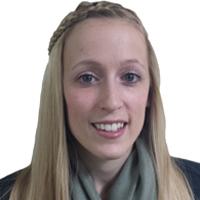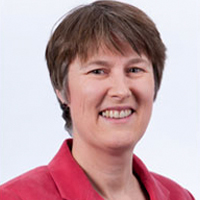
Ashley Siefert Nunes
Brenda Ekwurzel is a senior climate scientist and the director of climate science for the Climate & Energy Program at the Union of Concerned Scientists (UCS). In her role, she ensures that program analyses reflect robust climate science. She contributes to research on the influence of fossil fuel producers on global average temperatures, sea level, and other climate indicators. Dr. Ekwurzel is a co-author of the fourth National Climate Assessment (NCA4) Volume II. She presents frequently to a range of audiences on climate science and practical, achievable solutions for climate change.
Prior to joining UCS, Dr. Ekwurzel was on the faculty of the University of Arizona in their department of hydrology and water resources, with a joint appointment in the geosciences department. She has studied climate variability in places as disparate as the Arctic—where her research brought her to the North Pole—and the desert Southwest. Earlier in her career, Dr. Ekwurzel was a hydrologist, working with communities to protect groundwater.
Dr. Ekwurzel earned a B.S. in geology from Smith College, and an M.S. in geoscience from Rutgers University. She holds a Ph.D. in isotope geochemistry from the Department of Earth and Environmental Sciences at Columbia University's Lamont-Doherty Earth Observatory, and conducted post-doctoral research at Lawrence Livermore National Laboratory, in California.
A widely quoted expert on climate change, Dr. Ekwurzel co-authored the UCS guide Cooler Smarter: Practical Steps for Low-Carbon Living. In 2016, she was named a AAAS fellow, and cited for her “distinguished contributions to analysis and outreach aimed at strengthening support for sound U.S. climate policies, and making the science of climate change accessible to diverse audiences.” She has appeared on ABC News, CBS News, CNN, Good Morning America, NBC News, NPR, and The Colbert Report, and has been cited by Associated Press, New York Times, Reuters, USA Today and Washington Post.
Selected publications
Crooks, J.L., Licker, R., Hollis, A.L. and Ekwurzel, B. 2021. The ozone climate penalty, NAAQS attainment, and health equity along the Colorado Front Range. Journal of Exposure Science & Environmental Epidemiology 32:545–553. Available here.
Licker, R., B. Ekwurzel, S. C. Doney, S. R. Cooley, I. D. Lima, R. Heede, and P. C. Frumhoff. 2019. Attributing ocean acidification to major carbon producers. Environmental Research Letters 14(12). Available here.
Martinich, J., B.J. DeAngelo, D. Diaz, B. Ekwurzel, G. Franco, C. Frisch, J. McFarland, and B. O’Neill, 2018: Reducing Risks Through Emissions Mitigation. In Impacts, Risks, and Adaptation in the United States: Fourth National Climate Assessment, Volume II [Reidmiller, D.R., C.W. Avery, D.R. Easterling, K.E. Kunkel, K.L.M. Lewis, T.K. Maycock, and B.C. Stewart (eds.)]. U.S. Global Change Research Program, Washington, DC, USA. doi: 10.7930/NCA4.2018.CH29. Available here.
B. Ekwurzel, B., J. Boneham, M. W. Dalton, R. Heede, R. J. Mera, M. R. Allen, P. C. Frumhoff. 2017. The rise in global atmospheric CO2, surface temperature, and sea level from emissions traced to major carbon producers. Climatic Change online version of this article doi:10.1007/s10584-017-1978-0. Available here.
Ekwurzel, B., P C. Frumhoff, and J. McCarthy. 2011. Climate uncertainties and their discontents: Increasing the impact of assessments on public understanding of climate risks and choices. Climatic Change 108: 791-802. doi: 10.1007/s10584-011-0194-6. Available here.
White-Newsome J.L, B. Ekwurzel, M. Baer-Schultz, K.L. Ebi, M.S. O’Neill, and G.B. Anderson. 2014. Survey of county-level heat preparedness and response to the 2011 summer heat in 30 U.S. States. Environmental Health Perspectives 122:573–579. Available here.
Desilets, S.L.E., T.P.A. Ferré, and B. Ekwurzel. 2008. Flash flood dynamics and composition in a semiarid mountain watershed. Water Resources Research. 44, W12436, doi:10.1029/2007WR006159. Available here.
Desilets, S.L.E., B. Nijssen, B. Ekwurzel, and T.P.A. Ferré. 2007. Post-wildfire changes in suspended sediment rating curves: Sabino Canyon, Arizona. Hydrological Processes. 21:1413-1423. DOI: 10.1002/hyp.6352. Available here.
Moore, K. B., B. Ekwurzel, B. K. Esser, G. B. Hudson, J. E. Moran. 2006. Sources of Groundwater Nitrate Revealed Using Residence Time and Isotope Methods. Applied Geochemistry. 21:1016-1029. Available here.
Ekwurzel, B. 2005. Role and Importance of Paleohydrology in Study of Climate Change and Variability. Encyclopedia of Hydrological Sciences. M. G. Anderson (Editor-in-Chief), J. J. McDonnell (Advisory Editor), S. Sorooshian (Climate Change Section Editor)., John Wiley & Sons, Ltd., pp. 3051-3072. DOI: 10.1002/0470848944.hsa209. Available here.
Ekwurzel, B., P. Schlosser, J. H. Swift, R. A. Mortlock, and R. G. Fairbanks. 2001. River runoff, sea ice meltwater, and Pacific water distribution and mean residence times in the Arctic Ocean. Journal of Geophysical Research. 106:9075-9092. DOI: 10.1029/1999JC000024. Available here.
Ekwurzel, B., P. Schlosser, W. M. Smethie Jr., L. N. Plummer, E. Busenberg, R. L. Michel, R. Weppernig, and M. Stute. 1994. Dating of shallow groundwater: Comparison of the transient tracers 3H/3He, chlorofluorocarbons, and 85Kr. Water Resources Research. 30(6):1693-1708. DOI: 10.1029/94WR00156. Available here.
Book
Cooler Smarter: Practical Steps for Low-Carbon Living, Seth Shulman, Jeff Deyette, Brenda Ekwurzel, David Friedman, Margaret Mellon, John Rogers and Suzanne Shaw, published by Island Press, Washington DC, 1st edition (April 25, 2012) 336 pp. ISBN 13 9781610911924 Available here.
